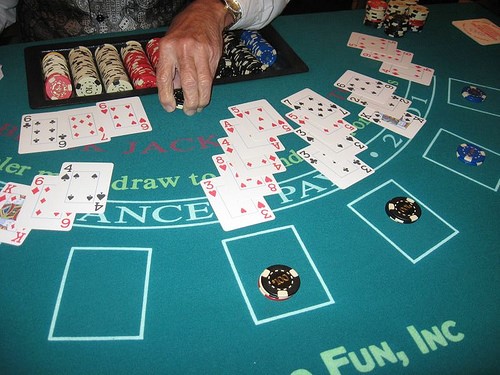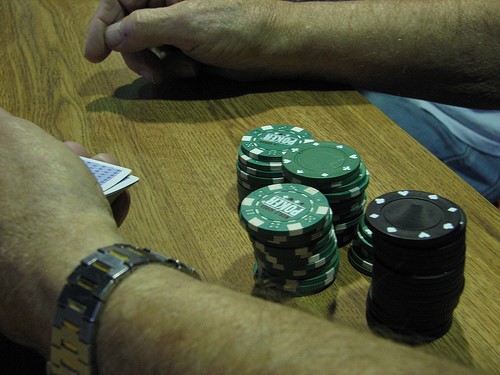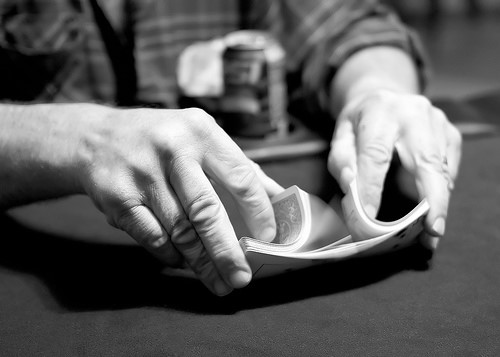
The ability to look beyond your own hand is a skill every blackjack player should learn. Regardless of the stakes you play for or the variant you most enjoy, blackjack is a game where the dealer’s card is as important, if not more so, than your own. Why, you may ask? Well, let us explain.
When you play blackjack at any established online casino, you always know you’re getting a fair shake of the dice (or the deck as the case may be). For instance, when you visit a licensed casino site like Spin Palace Canada that offers a selection of real money card games, blackjack not only ranks high on the list of options, but each game is certified as fair by eCOGRA.
Once you’ve got the confidence that the game is eCOGRA fair, you start to think about strategy and this is where spotting the dealer’s up card comes to play. Basically, what we mean by this is that you should assess the value of the dealer’s exposed card (i.e. the one on show) before you decide how to play your hand. Essentially, when you consider blackjack in this way, it starts to become like a game of poker.
Learning to Play Blackjack Like a Poker Player

Before any hand of poker, a skilled player will look around the table for subtle clues to help guide their moves. For example, if a player noticed an opponent had a tell (i.e. their body language), such as touching the table just before they placed a bet, they would wait to spot this before deciding what to do with their own hand. Indeed, it may be the case the physical tell is a sign of supreme strength, so the player could take this as a sign to fold.
This is similar to the moves you’ll make at the blackjack table if you’re a skilled player. So, let’s say you have a total of 13 and the dealer is showing a five. If you only considered your own hand in this example, the chances are you’d hit because 13 is a weak total that you’ll likely need to improve if you want to win. However, when you factor in the dealer’s card, this actually becomes a position where you should stand.
Make the Dealer Make a Move

Under the rules of most blackjack variants, the dealer must draw to at least 17 and stand on 17+. When you combine this with the fact there will be more high-value cards in the deck than low ones, we can make an assumption that an exposed 5 will turn into a total such as 15 when the dealer reveals their second card. Based on this assumption, we can then see that standing on 13 becomes the best move because it puts the pressure on the dealer.
Anytime you can make the dealer take a card in a bad position rather than doing it yourself is a good thing. Let them go bust while you sit and wait. Naturally, this dynamic also works the other way. If the dealer is showing a strong card (i.e. an ace, 9 or 10), you should be hitting more totals than normal. When you break it down in this way, you can see that blackjack strategy really isn’t that complicated. As long as you look beyond your own hand and consider the other variables in play, you should start to see more winning hands during a session.